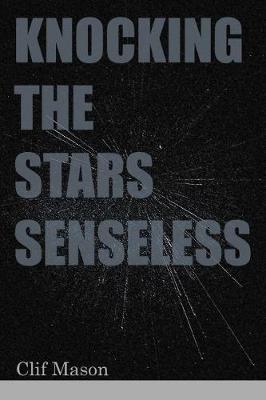
When did you start writing?
I wrote a few decidedly juvenile pieces while in high school
(including a wretched imitation of Chaucer’s Prologue to The Canterbury
Tales), but it wasn’t until the summer after my freshman year in college
when I became friends with a young poet. His name was Mark Porter, and he had
been a member of the Classics honorary society, Eta Sigma Phi, into which I had
recently been inducted. Until that summer, I hadn’t really gotten to know him
very well. We both went to summer school and lived in the same dormitory
complex. I learned that he was a devotee of Joan Baez, as well as many other
folk singers and groups, and that he also loved opera and classical symphonic
music. He introduced me to much music I had never heard before, and he shared
with me his translations of Catullus, as well as his own poems. I was struck by
their naturalness of tone and their beauty. His translations compare well, in my
view, with those by well-known translators. The previous year, I had read
widely in Allen Ginsberg and Lawrence Ferlinghetti, among other poets. I had
been listening semi-obsessively to Bob Dylan for several years by then. I was
struck by the surrealism of some of his imagery. The confluence of these
influences and the encouragement and example of my friend (and now mentor) helped
me realize by the end of that summer that I wanted be a poet. That is, I wanted
to be in the world, thinking, feeling, and perceiving, as a poet—and expressing
that existence through words.
Which writers inspired you and what about them fired your imagination?
Their number is, of course, legion. However, if I had to
limit myself to a handful, they would be Sappho, Shakespeare, Keats, Whitman,
Dickinson, Hopkins, Plath, Lorca, Neruda, Merwin, and Clampitt. Sappho for her
passion wed to her incomparable skill. Shakespeare for his vast ocean of
original metaphor, delivered in a startling rhetoric that still leaves me
speechless in admiration. Keats for his peerless lyricism and grace and for his
sense of himself as an artist. Whitman for the breadth of his human compassion
and for the robustness of his interest in the world around him, both the world
of nature and of the city. Dickinson for the depth and genuineness of her (sometimes)
melancholy and for her fearlessness in detailing it. Hopkins for the bold force
of his poems’ sonic effects. Lorca for his tragic sense of life, expressed in a
baroque language and surrealism that always leaves me in a state of wonderment.
Neruda for his supremely fertile surrealism and for the depth of his
imaginative involvement in the lives of the working class. Merwin for the
stunning originality and power of his surrealism, delivered in the most simple
and straightforward of language. Clampitt for the lush zest of her language and
the precision of her knowledge of the natural world. I believe that, among
contemporaries, she is the closest we have to Keats. Of course there are
innumerable others I might mention—Homer, Virgil, Dante, Coleridge, Christina
Rossetti, the Eliot of “Prufrock” and Four Quartets, Georg Trakl, Marianne
Moore, Elizabeth Bishop, Dylan Thomas, Wallace Stevens, Paul Celan, Theodore
Roethke, James Wright, A. R. Ammons, James Dickey, William Stafford, Denise
Levertov, Gary Snyder, Anne Sexton, Ted Hughes, Adrienne Rich, Rita Dove, Mary
Ruefle, Matthew and Michael Dickman, Natasha Trethewey, Lee Ann Roripaugh, Ilya
Kaminsky, Joan Houlihan, Nick Flynn, Diane Seuss, Jericho Brown, Aimee
Nezhukumatathil, Ada Limon, Kaveh Akbar, Ocean Vuong, Tiana Clark, and Joseph
Fasano are a few. And this is not even to mention the long list of the Nebraska
poets—the late William Kloefkorn and Ted Kooser and an array of other exceptional
living contemporaries. But I’ll leave it at my original list.
Who are some of your mentors--in
person or otherwise? What did you take away from them?
My college friend, whom I’ve already mentioned. Some of my
English teachers, such as William and Dorothy Selz, Thomas Gasque, John R.
Milton, Gervase Hittle, William Lemons, and Paul Pavich, from the University of
South Dakota, and Linda Ray Pratt, Bernice Slote, Louis Crompton, Walter Wright,
Elaine Jahner, Fran Kaye, Charles Stubblefield, and Paul Olson from the
University of Nebraska-Lincoln. Each of them offered me an intense appreciation
of particular writers or literary periods and helped deepen my commitment to literature
as a way of both knowing and recreating the world and to criticism as a way of passionately
experiencing literature in one’s nerves and synapses and of taking action in
the world. I would be utterly remiss if I did not mention three other
significant mentors from USD: Nancy Skeen, my philosophy teacher, who
introduced me to the love of ideas and the desire to continually pursue the
truth of things, even if that truth remains elusive; and Helen Fremstad and
Frederick Manfred, my two creative writing teachers. Their approach was one of
deep encouragement of what was best and fresh and distinctive in each of their
students’ work, without imposing their own predilections. A writer who also
studied with Manfred at the same time I did was the novelist Michael Doane, who
primarily wrote poetry then. The well-known novelist Pete Dexter also studied
with Manfred, as did my friend, Mark Porter.

No comments:
Post a Comment